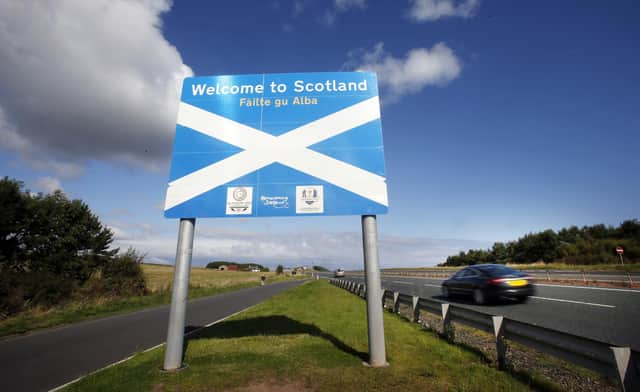Analysis: Splitters unite, but will it get them the Holyrood results they want?


These divisions tend to happen more on the left than the right, however the latest group of splitters come from within the ranks of Scotland’s independence movement, and the party vehicle which brought the goal of a separate Scotland within touching distance six years ago.
The SNP, since its membership swelled massively after the 2014 vote, has been facing the same problem with which the Labour Party continually grapples: how to hold a broad kirk of political opinion together, with everyone facing the same way, saying the same things at the same time. Strong leadership and a laser-like focus on the end game is needed to keep a vast, disparate group of people together, and the SNP has for some time been feeling that pressure.
Advertisement
Hide AdAdvertisement
Hide AdNicola Sturgeon’s cautious, gradualist approach to independence is not what many SNP supporters are looking for in 2020. They feel hamstrung by the need for a Section 30 to be granted by Westminster before another referendum can be held, and are pushing for this to be tested in the courts. She has been accused of taking her supporters too often to the top of the hill, only to have them march back down again.
Furthermore there are members who have quit the party over its stance on Gender Recognition Act reform – from both sides of the argument – while the fallout from the Alex Salmond trial has seen elected SNP politicians at loggerheads. All of this division internally, has perhaps inevitably, resulted in splitters; the centre just could not hold.
Debate is now raging inside the Yes movement over whether both votes should go to the SNP next year and if not, then where should they place their x? The Greens have been the second choice for many in previous elections, but there is growing disaffection within the SNP membership with Patrick Harvie’s party.
Already a new party, Independence for Scotland has launched, formed from previous SNP members, to stand candidates on the regional list next year, the independence blogger Wings Over Scotland has said he could launch his own party, and today has seen the announcement of a new Alliance for Independence (AFI) which, in a spirit of supreme confidence aims to return up to 24 MSPs at next year's Holyrood elections.
The AFI is being spearheaded by former SNP MSP Dave Thompson - the man who tipped the scales in the SNP’s favour at the 2007 elections, winning by one vote and relegating Labour to the opposition benches in Holyrood.
He, and every other new independence party, believe that there are votes to be had, from the SNP and the Greens, and that one million pro-independence voters did not vote in 2016, so could be tempted to their ranks. There’s also a belief that they could attract those sympathetic to independence within the ranks of Labour, Tory and Lib Dem parties.
Will it work? History suggest not. The last great split in party politics was the creation of the Social Democratic Party in 1981 when four Labour moderates left to plough a new furrow in UK politics. It didn't last long – they eventually merged with the Liberal Party, to create the Liberal Democrats, a party which only managed to get into the corridors of power through a coalition with the Tories in 2010 and have scattered to the seven hills since.
Change UK which briefly flared before being doused at the last General Election saw MPS from Conservative, Labour and LibDems coalesce over their opposition to Brexit, but they made no electoral impact. And while there was much grinding of teeth and rumours that Labour moderates would quit to form a new party during Jeremy Corbyn’s time as leader it didn’t happen because they knew too well how difficult it is to get voters to accept new parties in a First Past the Post voting system.
Advertisement
Hide AdAdvertisement
Hide AdThe Scottish electoral system is different, which gives confidence to these new starts that they could pick up votes and ultimately return MSPs. But with so many competing for the same votes – namely those who are in favour of independence – they could ultimately cause too much refraction and lose out.
It's an issue the pro-union parties have had to face for quite some time. No doubt they will be delighted that the hegemony of the SNP at the ballot box may now be challenged, even if it’s not by them.
A message from the Editor:Thank you for reading this story on our website. While I have your attention, I also have an important request to make of you.With the coronavirus lockdown having a major impact on many of our advertisers - and consequently the revenue we receive - we are more reliant than ever on you taking out a digital subscription.Subscribe to scotsman.com and enjoy unlimited access to Scottish news and information online and on our app. With a digital subscription, you can read more than 5 articles, see fewer ads, enjoy faster load times, and get access to exclusive newsletters and content. Visit https://www.scotsman.com/subscriptions now to sign up.
Our journalism costs money and we rely on advertising, print and digital revenues to help to support them. By supporting us, we are able to support you in providing trusted, fact-checked content for this website.
Joy Yates
Editorial Director
Comments
Want to join the conversation? Please or to comment on this article.